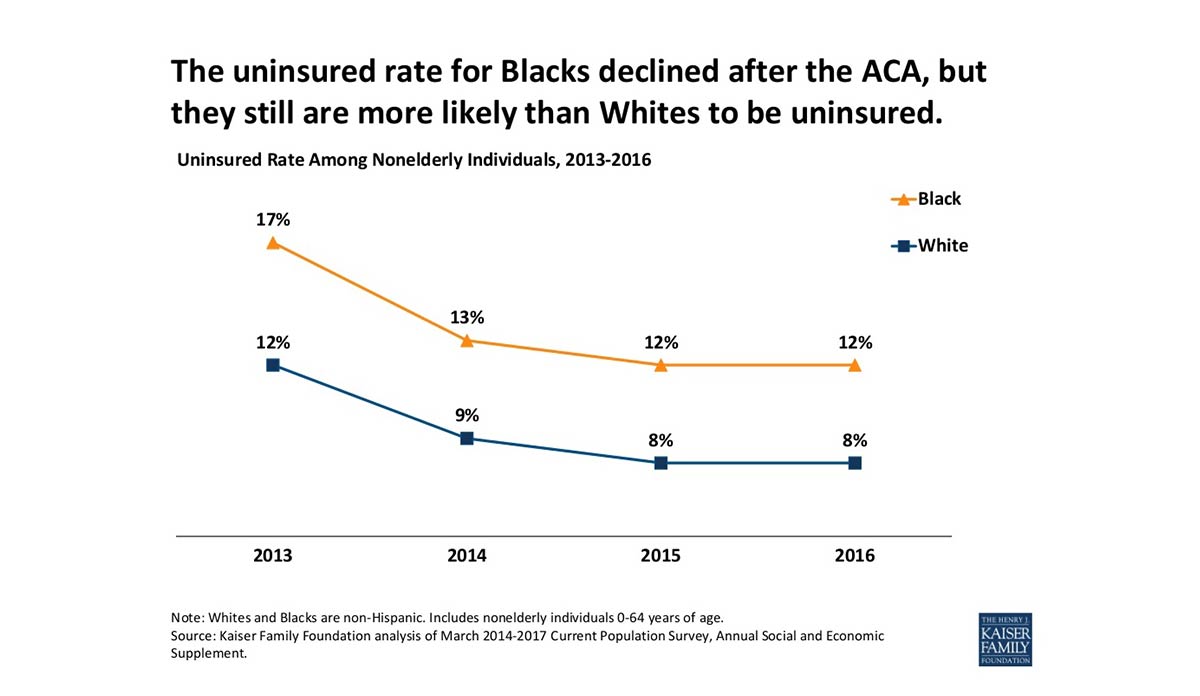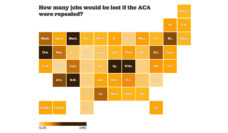When the Affordable Care Act passed the Senate in 2009, then-Majority Leader Harry Reid from Nevada said, “Those fortunate enough to have health insurance will be able to keep theirs, and those who do not will be able to have health insurance.” Though the percentage of those without insurance has decreased (as shown in the figure above), Black Americans are still more likely to be uninsured than White Americans.
The Kaiser Family Foundation (KFF) used the Current Population Survey from the United States Census Bureau to analyze the differences in uninsured rates between White and Black populations. Those included in the data are non-Hispanic and under the age of 64.
Despite gains in coverage for both White and Black individuals between 2013 and 2016, the uninsured rate for Black individuals remained higher than the uninsured rate for White individuals in 2016. Black individuals make up 15% or more of the population in Virginia, North Carolina, South Carolina, Georgia, Alabama, Mississippi, and Tennessee. None of these states have expanded Medicaid. The expansion of Medicaid in southeastern states could close the gap in uninsured rates between Black and White Americans.
Databyte via Health and Health Care for Blacks in the United States. Kaiser Family Foundation.













